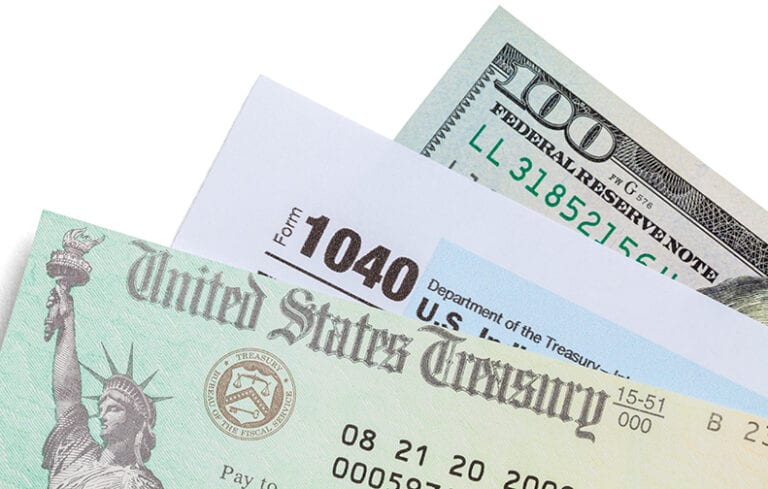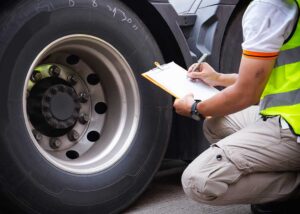As if 2020 didn’t bring enough problems, your tax bill for the year could be impacted. Consulting a professional tax preparer between now and April 15 — one that is familiar with trucking — is a good idea.
Whether you operate your own trucking business or drive for someone else, your tax liability could be different this year. Since many drivers suffered a reduction in income for 2020, a tax surprise when filing could be devastating.
First, the good news. Any economic impact payments you received aren’t taxable unless your total income was more than $75,000 (single) or $150,000 (married). That includes both the $1,200 per person payments sent out in April and the second payment of $600 that was distributed in late December. The amounts will be listed as both income and a tax credit on your tax return.
There’s more good news for those who pay the 15.3% Self-Employment tax. Under the CARES Act, up to 50% of the amount earned between March 27 and Dec. 31 can be deferred.
Because so many people worked from home during the pandemic, you may also be able to claim a deduction for using a part of your residence for work. Be careful, however, if your work and your residence are in different states. It’s possible you worked at a different location enough days for a second state to claim you as a resident. Your tax professional can help you sort it out.
Many people were helped by the $600 per week supplement to unemployment compensation included in the CARES Act (Coronavirus Aid, Relief and Economic Security). The supplement, along with the state’s normal unemployment amount, is taxable on federal returns and on most state returns.
Under legislation signed by former president Donald Trump on Dec. 27, a second round of Paycheck Protection Program loans will soon be available for businesses with less than 300 employees, sole proprietorships and self-employed individuals.
Since President Joe Biden was inaugurated Jan. 20, more relief related to the pandemic may be in the works. A tax professional can help you take advantage of any new breaks or benefits.
Even though 2020 has ended, there’s still time to help your tax preparer and yourself. Make sure you’ve gathered receipts for all your expenses. Keep in mind that some of those receipts won’t of the paper variety received from stores and fuel stops. If, for example, you have a separate meter for electricity used in your shop or you pay for a dedicated phone line for your business, you’ll need evidence of those expenses. Vendors you’ve bought from online often save the invoices indefinitely, so you may be able to retrieve any you’ve misplaced. Credit card bills are often available for a year or more and can be accessed online. Even a review of your checkbook register, whether paper or online, could help you identify tax-deductible expenses.
Another review that could be important is your records-of-duty status. This can mean poring through a year’s worth of log books or reviewing printouts from an ELD. The IRS allows a deduction of up to 80% of the cost for meals and incidentals. There’s a standard deduction that can be used instead of actual expenses, but you’ll need proof that you were on the road for each day you claim.
Those meal deductions will be even more important in 2021, since the December stimulus bill increased the deduction percentage from 80% to 100% for truckers.
A large deduction that can confuse owners is depreciation of equipment. The value of your truck is spread out over its perceived useful life. Once the depreciation is written off, it can’t be claimed again. If your income suffered substantially last year, it might be possible to defer the depreciation deduction until 2021. Your tax professional can help you determine what options are available.
It’s not too late to make important business decisions for 2021. As the pandemic winds down, lower fuel prices caused by lowered demand will undoubtedly end. Environmental policies enacted by the Biden administration could drive prices upward. The time may be right to invest in aerodynamic treatments for truck or trailer, or in other equipment needs.
Finally, if you don’t have a tax advisor who is knowledgeable about the unique circumstances of trucking, it’s a good time to find one. You might easily find someone that can complete tax forms, but you should be confident that your advisor is taking advantage of every opportunity to save you money on the taxes you pay this year while helping you prepare for the next.
Editor’s note: The advice offered in this article is not that of an accountant or tax attorney. The intent of this article is to offer helpful tips — not apply tax law and accounting processes to every situation.
Cliff Abbott is an experienced commercial vehicle driver and owner-operator who still holds a CDL in his home state of Alabama. In nearly 40 years in trucking, he’s been an instructor and trainer and has managed safety and recruiting operations for several carriers. Having never lost his love of the road, Cliff has written a book and hundreds of songs and has been writing for The Trucker for more than a decade.








